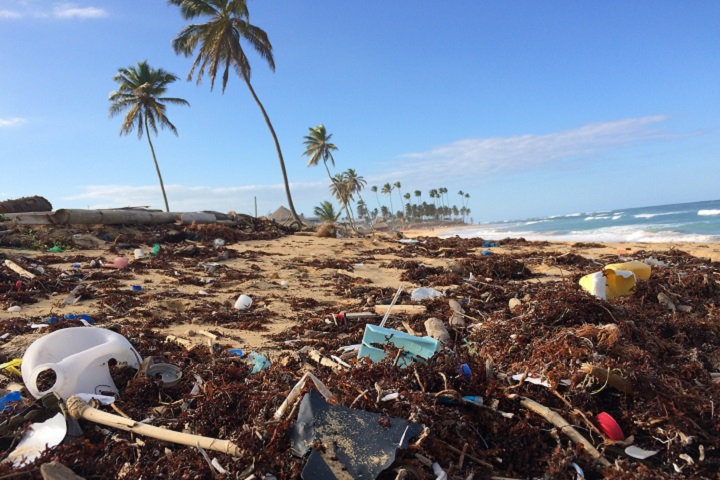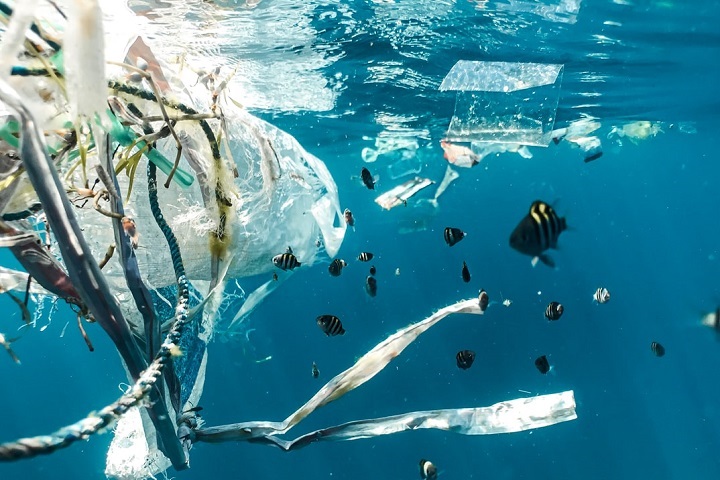The oceans represent more than 70% of the earth’s surface and house 97% of the water that exists on the planet, these large masses of salt water are home to thousands of animal and plant species, bacteria and other microorganisms, they are also a important source of natural resources, etc., unfortunately the human being has discovered a way to take advantage of these aquatic spaces and turn them into the new human landfills, which translates into pollution in the oceans.
Marine pollution is pollution in the oceans, each family generates about 250 kilos of plastic waste per year, it affects us directly, killing the species that die or are poisoned every day by feeding on plastic particles. How could we avoid it? Avoiding the consumption as much as possible of the number of plastics, using biodegradable materials, and educating our children in responsible consumption.
Until the 1970s, there was a popular belief that due to the large amount of water in the oceans, it had the ability to dilute all pollutants without generating consequences in the environment. During those years, all kinds of chemicals, untreated sewage, and even radioactive waste were dumped into the seas, in the hope that they would disappear into the deep blue.

However, far from being diluted, these pollutants have been accumulating both in the water and in the food chains and, in addition, they have managed to distribute themselves throughout the planet, reaching places where human activity is not so present, such as the Mariana Trench. or Antarctica.
Global warming is also a major cause of pollution. It does not directly release any toxic substance, but when the temperature of the sea water rises, its components, in this case oxygen, decrease significantly. The high levels of CO2 floating in the air are absorbed by the ocean, thus causing its acidification.
Industry is possibly the most important cause of pollution of the oceans, due to the large amounts of hydrocarbons and other toxic substances that are released. This type of waste directly affects marine life, causing a rise in sea temperature, known as thermal pollution.
Ocean mining at sea is another source of ocean pollution. Ocean mining sites drilling for silver, gold, copper, cobalt and zinc create sulfide deposits up to 12,000 feet deep in the ocean. This type of extraction causes damage in the lower levels of the ocean, on the seabed.

As you know, the main culprits of the pollution of the oceans, we are not ordinary citizens. Normally it is companies and governments around the world that do not put in place the necessary measures to avoid it. However, you can have a clear conscience doing what is in your hands. Protect your beaches if you want those who come to continue enjoying them.
In general, the importance of our oceans and seas for economic development and environmental balance is recognized. In the world’s coastal areas – where most of the planet’s population lives – the health, well-being and, in some cases, the very survival of people depend on the health and well-being of coastal systems, estuaries and marshes, as well as their slopes, catchment basins and waters near the coasts linked to them. Ultimately, sustainable human activity patterns in coastal areas depend on a healthy marine environment, and vice versa.
IC Corporation we are committed to responsible action for environmental conservation, we offer solutions that contain alternatives that can be sustained and are efficient over time, through systems and structures of telecommunications services, supplies, energy, water, and solid waste.

IC INTERNATIONAL GROUP
Copyright © 2024. Todos los derechos reservados
to save your favourite homes and more
Log in with emailDon't have an account? Sign up
Enter your email address and we will send you a link to change your password.
to save your favourite homes and more
Sign up with emailAlready have an account? Log in